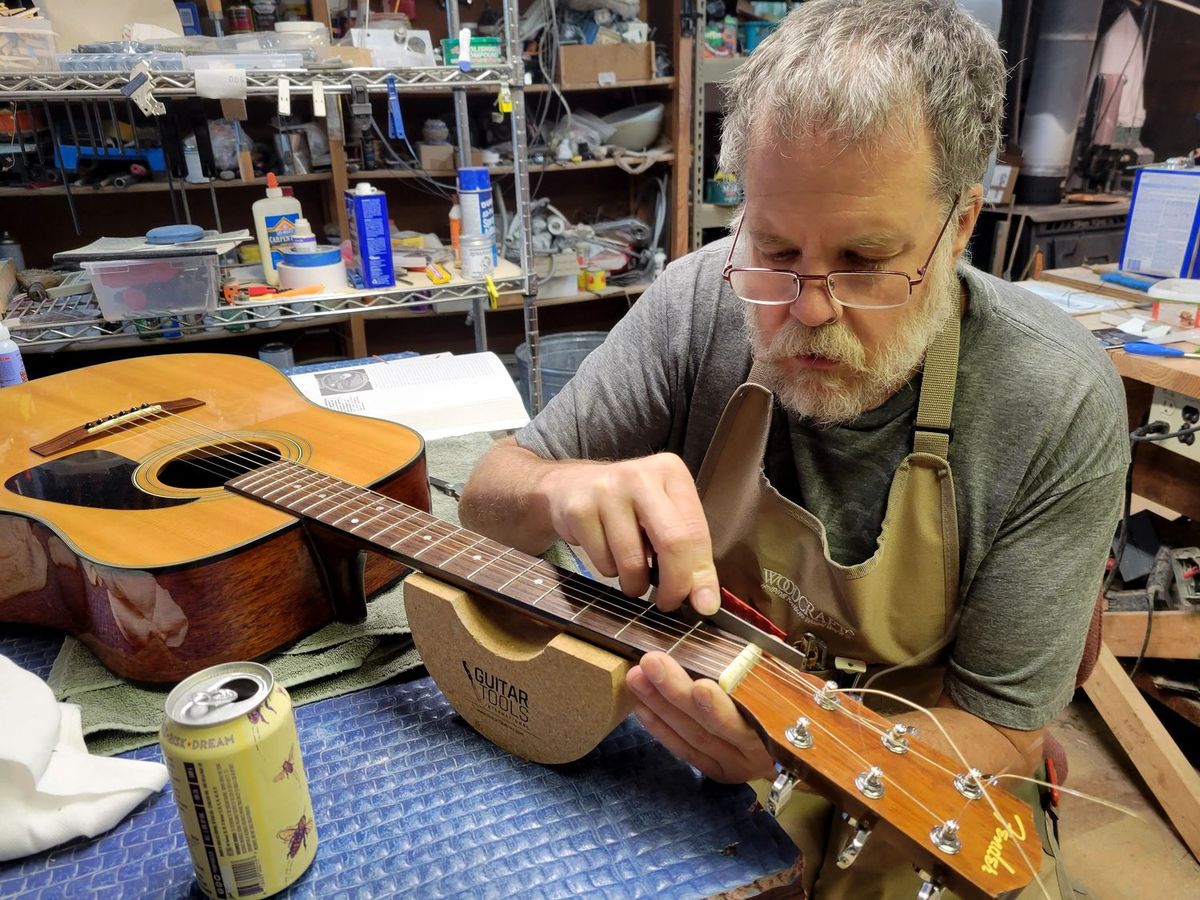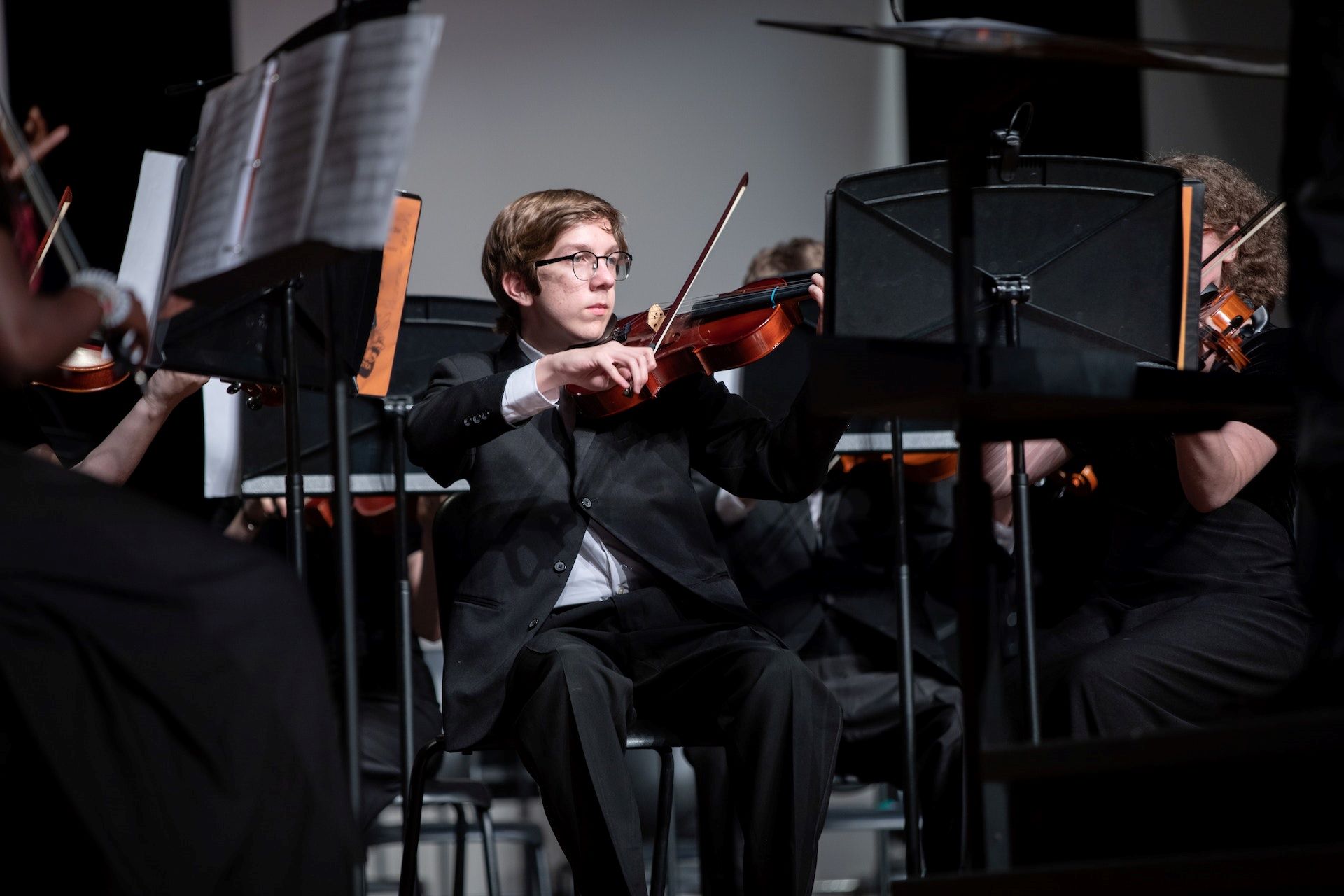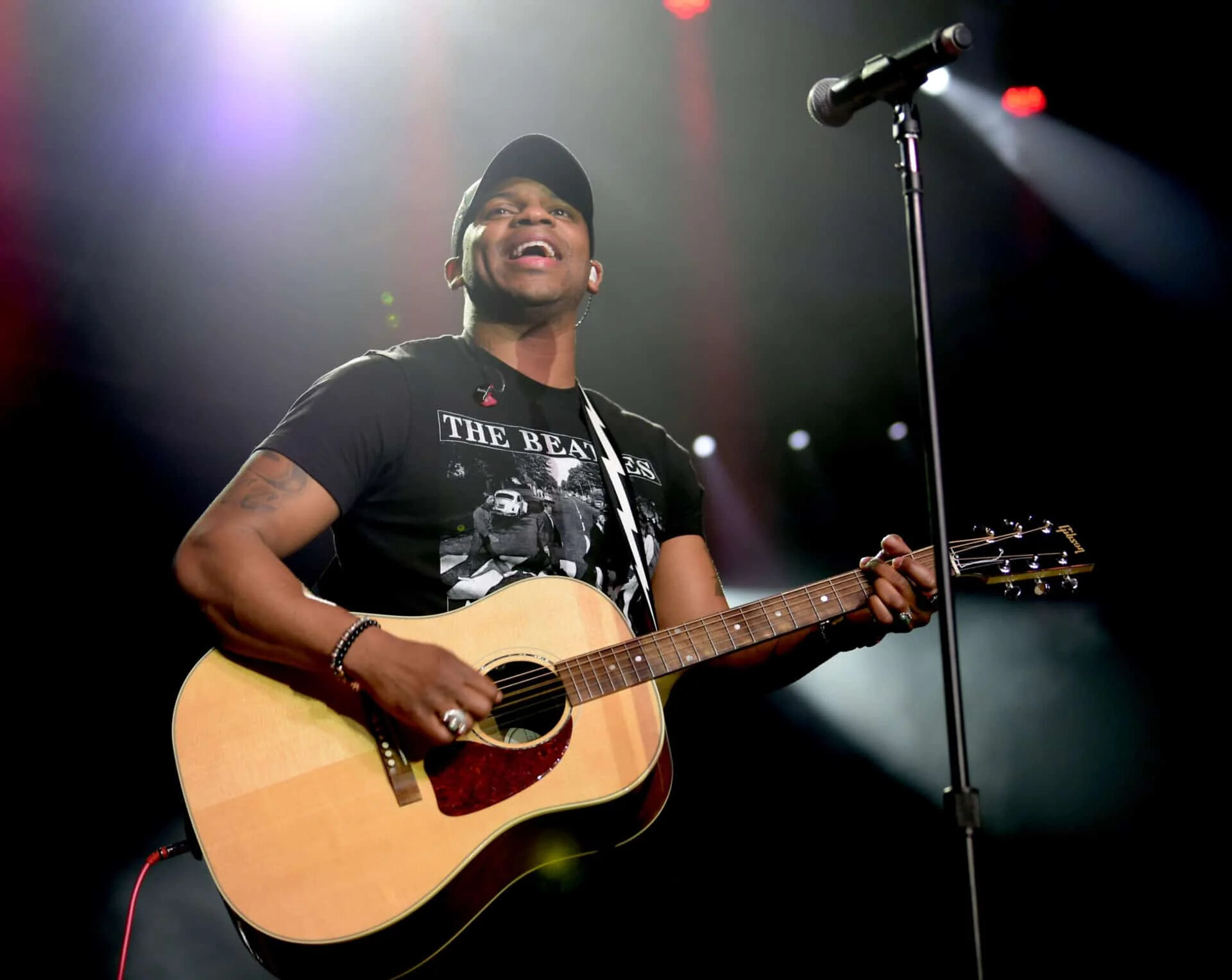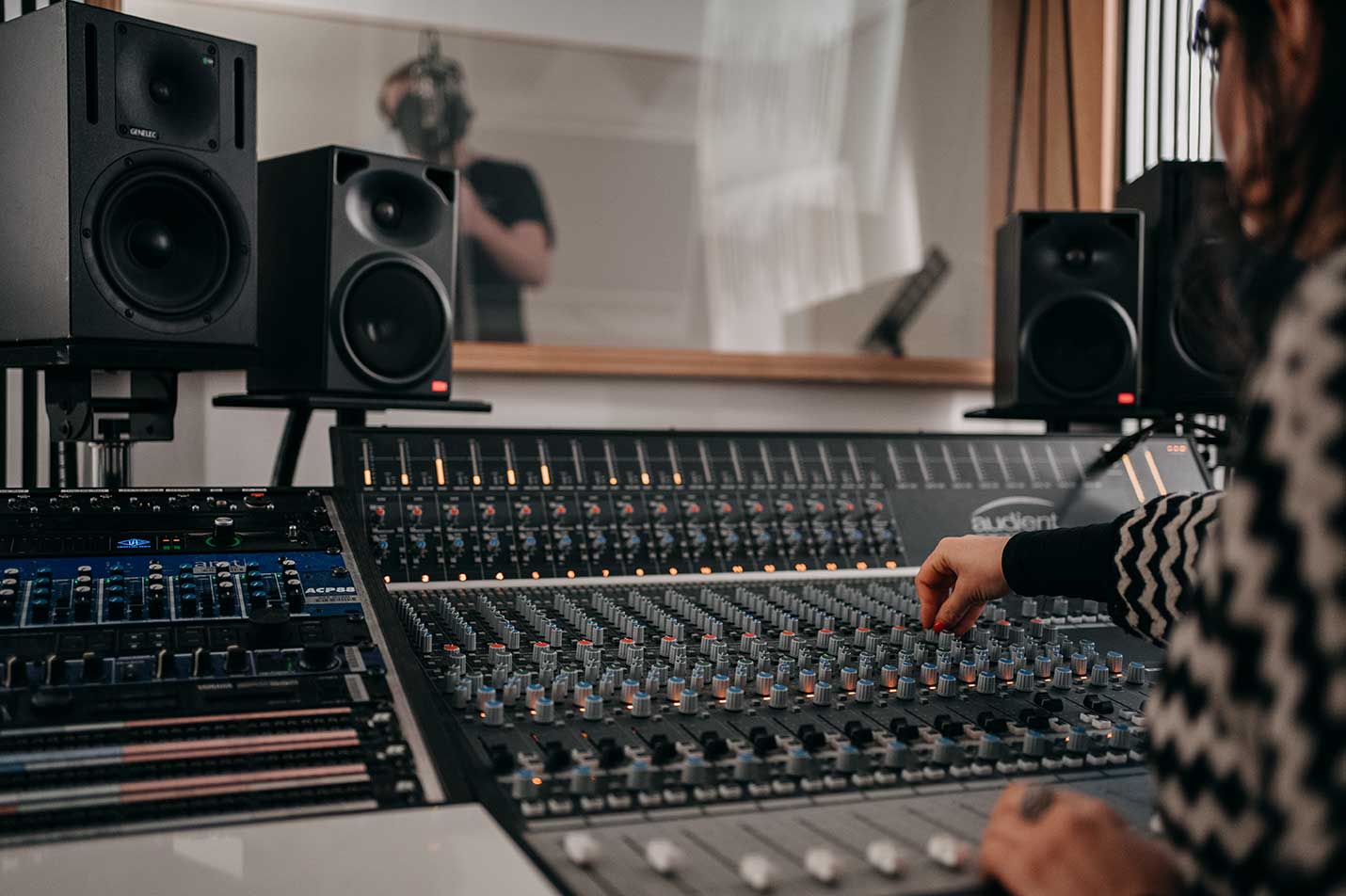Home>Production & Technology>Orchestra>How To Become An Orchestra Conductor
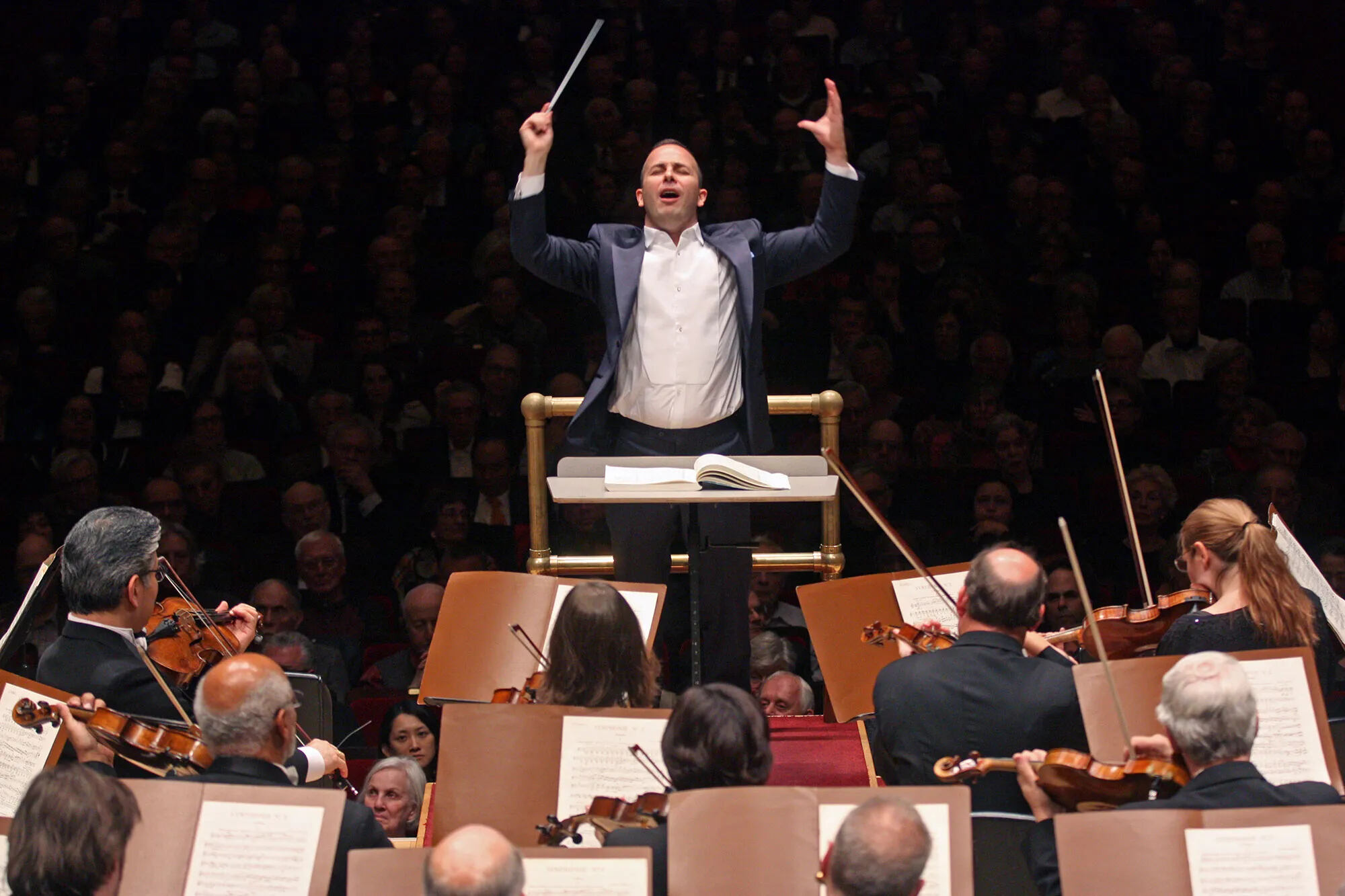

Orchestra
How To Become An Orchestra Conductor
Published: February 24, 2024
Learn the steps to become an orchestra conductor, from education and training to gaining experience and leading a successful career in the music industry. Discover the path to conducting orchestras and pursuing your passion for music.
(Many of the links in this article redirect to a specific reviewed product. Your purchase of these products through affiliate links helps to generate commission for AudioLover.com, at no extra cost. Learn more)
Table of Contents
Introduction
Becoming an orchestra conductor is a remarkable journey that requires passion, dedication, and a deep love for music. The role of an orchestra conductor is not only to lead and direct the musicians but also to interpret the composer's vision and bring it to life through the orchestra's performance. It is a position of immense responsibility and creativity, requiring both technical expertise and artistic sensibility.
The path to becoming an orchestra conductor is as diverse as the individuals who embark on this career. It often begins with a profound connection to music, whether through playing an instrument, singing in a choir, or simply being captivated by the power of orchestral performances. This initial spark ignites a desire to delve deeper into the world of music, leading aspiring conductors to explore the intricacies of orchestral compositions, conducting techniques, and the historical context of various musical genres.
Aspiring orchestra conductors are driven by a relentless pursuit of excellence, constantly refining their musical skills, deepening their knowledge of music theory, and honing their ability to interpret and express the nuances of different musical pieces. They immerse themselves in the works of renowned composers, studying the intricacies of orchestration, harmony, and rhythm to develop a profound understanding of musical composition.
The journey to becoming an orchestra conductor is not solely about mastering the technical aspects of music. It also involves cultivating leadership and communication skills essential for guiding a diverse group of talented musicians toward a unified and harmonious performance. The conductor's role extends beyond mere musical direction; it encompasses the art of inspiring and motivating the orchestra members to deliver a captivating and emotive rendition of the musical score.
This article serves as a comprehensive guide for individuals aspiring to become orchestra conductors. It will explore the multifaceted path to achieving this esteemed position, encompassing the development of musical skills, the pursuit of formal education, the acquisition of practical experience, and the cultivation of leadership and networking abilities within the music industry. By delving into each aspect of this journey, aspiring conductors can gain valuable insights and guidance to navigate the intricate and rewarding path toward becoming a proficient and respected orchestra conductor.
Understanding the Role of an Orchestra Conductor
The role of an orchestra conductor is multifaceted, encompassing a diverse array of responsibilities that extend far beyond simply directing the musicians. At the heart of this role lies the conductor's ability to interpret and convey the composer's vision, infusing each musical piece with depth, emotion, and artistic interpretation. The conductor serves as the bridge between the composer's creation and the orchestra's performance, wielding the baton as a powerful tool to shape and guide the collective musical expression.
A conductor's primary task is to lead and unify the orchestra, bringing together a group of talented musicians to create a cohesive and harmonious performance. This involves not only setting the tempo and cueing the entrances of different sections but also conveying the expressive nuances and dynamics of the music through gestures and body language. The conductor's physical movements serve as a visual language, communicating the subtleties of the music to the orchestra members and guiding them through the ebb and flow of the musical narrative.
Beyond technical direction, the conductor assumes the role of a musical interpreter, delving into the depths of each composition to extract its inherent emotion and meaning. This demands a profound understanding of musical theory, orchestration, and historical context, enabling the conductor to breathe life into the notes on the page and convey the composer's intended message to the audience. Through meticulous study and introspection, conductors strive to uncover the essence of each musical piece, unraveling its narrative, and imbuing it with a captivating and evocative rendition.
Furthermore, the conductor acts as a facilitator of collaboration and creativity within the orchestra, fostering a conducive environment for musical exploration and expression. By inspiring and guiding the musicians, the conductor cultivates a sense of unity and shared purpose, allowing the orchestra to transcend technical proficiency and delve into the realm of artistic interpretation. This collaborative dynamic empowers the orchestra to deliver performances that resonate deeply with audiences, evoking a profound emotional connection and leaving a lasting impression.
In essence, the role of an orchestra conductor encompasses artistic interpretation, technical direction, and the cultivation of a collaborative musical experience. It is a position of immense influence and creative expression, requiring a delicate balance of musical expertise, leadership acumen, and a deep-seated passion for the transformative power of music. Aspiring conductors embarking on this journey must embrace the multifaceted nature of this role, recognizing it as a profound opportunity to shape and enrich the musical landscape through their artistic vision and leadership.
Developing Musical Skills and Knowledge
Developing musical skills and knowledge is a foundational step for aspiring orchestra conductors, laying the groundwork for a profound understanding of music theory, composition, and performance. This journey begins with a deep appreciation for music in all its forms, fueling a relentless pursuit of mastery and artistic expression.
At the core of developing musical skills is the mastery of an instrument. Many aspiring conductors begin their musical journey by learning to play a specific instrument, such as the piano, violin, or cello. This hands-on experience provides invaluable insight into the intricacies of musical expression, fostering a deep connection to the nuances of tone, phrasing, and dynamics. Mastery of an instrument equips conductors with a profound understanding of the technical and expressive capabilities of each orchestral section, enabling them to communicate effectively with musicians and convey their artistic vision with clarity.
In addition to instrumental proficiency, aspiring conductors immerse themselves in the study of music theory and composition. This involves delving into the complexities of harmony, counterpoint, rhythm, and form, gaining a comprehensive understanding of the structural underpinnings of musical works. By dissecting and analyzing renowned compositions across various genres and historical periods, aspiring conductors cultivate a discerning ear for musical intricacies, honing their ability to interpret and convey the expressive elements embedded within each piece.
Furthermore, developing musical skills encompasses the exploration of conducting techniques and rehearsal methodologies. Aspiring conductors engage in rigorous study and practical application of conducting gestures, baton technique, and score analysis, refining their ability to communicate musical phrasing, dynamics, and articulation to the orchestra. They also delve into the art of score study, scrutinizing orchestral scores to uncover the composer's intentions, interpret the musical narrative, and formulate a cohesive and insightful approach to conducting the piece.
Moreover, gaining exposure to a diverse repertoire of musical genres and styles is pivotal in broadening the musical horizons of aspiring conductors. This entails exploring classical masterpieces, contemporary compositions, and cross-genre collaborations, fostering an eclectic and inclusive approach to musical interpretation. By embracing a wide spectrum of musical styles, conductors expand their artistic palette, enriching their ability to navigate the nuances of diverse compositions and infuse each performance with depth and authenticity.
In essence, the journey of developing musical skills and knowledge is an immersive and lifelong pursuit, characterized by a deep-seated passion for musical expression and a relentless dedication to artistic growth. Aspiring orchestra conductors embark on this transformative odyssey, cultivating a profound understanding of music's language, its expressive potential, and the art of translating musical scores into captivating and emotive performances. This foundational journey sets the stage for aspiring conductors to embark on the multifaceted path toward becoming proficient and revered leaders within the realm of orchestral conducting.
Gaining Experience and Education
Gaining experience and education is a pivotal phase in the journey of aspiring orchestra conductors, encompassing a multifaceted approach to honing their craft, acquiring practical skills, and delving into the depths of musical scholarship. This transformative phase serves as a bridge between foundational musical knowledge and the practical application of conducting techniques, orchestral leadership, and artistic interpretation.
Formal education plays a central role in equipping aspiring conductors with the theoretical foundation and practical tools essential for their development. Many aspiring conductors pursue undergraduate and graduate degrees in music, specializing in orchestral conducting, music theory, or music education. These academic programs provide a comprehensive curriculum that encompasses music history, analysis, composition, and conducting pedagogy, allowing students to delve into the historical and theoretical underpinnings of orchestral repertoire while refining their technical and interpretive skills.
In addition to formal education, gaining practical experience through hands-on opportunities is integral to the growth of aspiring conductors. This often involves participating in conducting workshops, masterclasses, and summer music festivals, where students have the opportunity to work closely with professional conductors, mentor ensembles, and receive constructive feedback on their conducting technique and musical interpretation. These immersive experiences offer invaluable insights into the nuances of orchestral leadership, rehearsal dynamics, and the art of translating musical scores into compelling performances.
Furthermore, seeking mentorship from established conductors and music educators is a transformative avenue for aspiring conductors to gain practical wisdom and guidance. Mentors provide invaluable support, offering personalized feedback, sharing their wealth of experience, and nurturing the artistic and leadership potential of emerging conductors. Through mentorship, aspiring conductors benefit from the wisdom and insights of seasoned professionals, gaining a deeper understanding of the intricacies of orchestral conducting and the nuances of musical interpretation.
Moreover, gaining experience and education extends beyond the confines of formal instruction, encompassing immersive opportunities to collaborate with orchestras, chamber ensembles, and community music organizations. Engaging in conducting apprenticeships, assistant conductor positions, and collaborative projects enables aspiring conductors to apply their skills in real-world settings, refine their rehearsal and performance techniques, and develop a nuanced understanding of the collaborative dynamics within an orchestra.
In essence, the phase of gaining experience and education is a transformative journey that empowers aspiring conductors to integrate theoretical knowledge with practical application, refine their artistic sensibilities, and cultivate the leadership acumen essential for guiding and inspiring orchestral musicians. This phase serves as a crucible for aspiring conductors, shaping them into adept and insightful leaders who are poised to embark on the next stage of their journey within the realm of orchestral conducting.
Building Leadership and Communication Skills
Building leadership and communication skills is a pivotal aspect of the journey for aspiring orchestra conductors, encompassing the development of essential attributes that underpin effective orchestral leadership and cohesive musical interpretation. As conductors navigate the intricate realm of orchestral conducting, they must cultivate a profound understanding of leadership dynamics, communication strategies, and the art of fostering collaboration within the orchestra.
At the core of building leadership skills is the cultivation of a compelling and inclusive leadership style that inspires and motivates orchestra members. This involves honing the ability to articulate a clear artistic vision, communicate musical concepts with precision, and foster a collaborative environment that empowers musicians to contribute their unique talents to the collective performance. Effective leadership entails not only commanding respect but also fostering a sense of trust, mutual respect, and shared purpose within the orchestra, creating a harmonious and conducive atmosphere for musical exploration and expression.
Furthermore, developing communication skills is integral to the conductor's ability to convey musical interpretation, express artistic nuances, and provide constructive feedback to orchestra members. Effective communication involves the mastery of non-verbal cues, expressive gestures, and verbal articulation, enabling conductors to convey the subtleties of musical phrasing, dynamics, and emotional expression to the orchestra. Through clear and expressive communication, conductors foster a shared understanding of the musical narrative, guiding musicians toward a unified and evocative performance that resonates deeply with audiences.
Moreover, building leadership and communication skills encompasses the art of adaptability and empathy, allowing conductors to connect with orchestra members on a personal and artistic level. By understanding the individual strengths, challenges, and artistic inclinations of each musician, conductors can tailor their leadership approach and communication style to inspire and empower the orchestra members effectively. This empathetic and adaptable approach fosters a sense of inclusivity and mutual respect within the orchestra, creating a collaborative dynamic that elevates the collective musical interpretation and performance.
In essence, the journey of building leadership and communication skills equips aspiring conductors with the essential tools to lead, inspire, and communicate effectively within the orchestral setting. This transformative phase empowers conductors to cultivate a leadership style that fosters unity, creativity, and artistic expression, laying the foundation for a dynamic and cohesive orchestral performance that transcends technical proficiency and resonates deeply with audiences.
Networking and Making Connections in the Music Industry
Networking and making connections in the music industry is a crucial endeavor for aspiring orchestra conductors, offering a gateway to diverse opportunities, mentorship, and collaborative ventures. The music industry thrives on interconnectedness, and building a robust network of professional relationships is instrumental in fostering career growth, gaining valuable insights, and accessing a myriad of resources within the orchestral landscape.
Networking within the music industry extends beyond conventional interactions; it encompasses a multifaceted approach to connecting with musicians, composers, educators, and industry professionals. Aspiring conductors engage in networking events, music conferences, and industry gatherings, where they have the opportunity to forge meaningful connections, exchange ideas, and immerse themselves in the vibrant tapestry of the music community. These interactions provide a platform for aspiring conductors to gain visibility, showcase their talent, and establish rapport with individuals who play pivotal roles in the orchestral realm.
Moreover, leveraging digital platforms and social media channels is pivotal in expanding one's network within the music industry. Aspiring conductors utilize platforms such as LinkedIn, professional forums, and online communities to connect with industry professionals, share their artistic endeavors, and stay abreast of industry trends. Through active engagement and thought leadership, aspiring conductors can amplify their presence within the digital sphere, fostering connections with professionals across geographical boundaries and cultivating a global network of musical collaborators and mentors.
Seeking mentorship from established conductors and industry veterans is a transformative avenue for aspiring conductors to gain practical wisdom, guidance, and access to a wealth of industry insights. Mentorship relationships provide aspiring conductors with invaluable support, personalized feedback, and a nurturing environment to refine their artistic and leadership potential. Through mentorship, aspiring conductors gain access to a vast reservoir of experiential knowledge, enabling them to navigate the nuances of the music industry and chart a course toward professional growth and artistic fulfillment.
In essence, networking and making connections in the music industry is an indispensable facet of the journey for aspiring orchestra conductors. It is a dynamic and collaborative endeavor that empowers conductors to expand their professional horizons, access diverse opportunities, and cultivate enduring relationships that enrich their artistic journey. By embracing the power of networking, aspiring conductors can position themselves at the forefront of the orchestral landscape, forging connections that propel them toward a vibrant and impactful career within the realm of orchestral conducting.
Pursuing Opportunities and Advancing in the Field
Pursuing opportunities and advancing in the field of orchestral conducting is a dynamic and multifaceted endeavor that encompasses a proactive approach to career development, artistic exploration, and professional growth. As aspiring orchestra conductors navigate the landscape of the music industry, they are presented with a myriad of opportunities to showcase their talent, collaborate with diverse ensembles, and contribute to the rich tapestry of musical expression.
One pivotal avenue for pursuing opportunities lies in seeking engagements as guest conductors with orchestras, chamber ensembles, and academic institutions. Guest conducting offers aspiring conductors a platform to lead diverse ensembles, interpret a wide range of musical repertoire, and showcase their artistic prowess on a broader stage. These engagements provide invaluable exposure, allowing conductors to expand their professional network, refine their interpretive skills, and leave a lasting impression on audiences and musicians alike.
Furthermore, aspiring conductors can explore opportunities to participate in conducting competitions, workshops, and artist residencies, where they can hone their craft, receive mentorship from esteemed professionals, and gain recognition for their artistic endeavors. These immersive experiences serve as catalysts for artistic growth, providing aspiring conductors with a platform to refine their conducting technique, expand their repertoire, and receive constructive feedback from industry experts.
Advancing in the field of orchestral conducting also entails pursuing educational and professional development opportunities. Many aspiring conductors seek advanced degrees, such as Doctor of Musical Arts (DMA) in orchestral conducting, to deepen their scholarly knowledge, refine their artistic vision, and contribute to the academic discourse within the field. Additionally, engaging in continuous professional development through seminars, conferences, and masterclasses enables conductors to stay abreast of industry trends, expand their artistic horizons, and foster a lifelong commitment to artistic excellence.
Moreover, aspiring conductors can explore collaborative ventures with composers, music festivals, and interdisciplinary artistic projects, embracing innovative and boundary-pushing initiatives that push the boundaries of traditional orchestral repertoire. By championing new works, cross-genre collaborations, and community outreach initiatives, conductors can carve a unique and impactful niche within the orchestral landscape, contributing to the evolution of musical expression and engaging diverse audiences with their artistic vision.
In essence, pursuing opportunities and advancing in the field of orchestral conducting is a vibrant and transformative journey that empowers aspiring conductors to embrace a proactive and entrepreneurial spirit, seize diverse opportunities for artistic expression, and contribute to the rich tapestry of musical innovation and collaboration. By embracing a dynamic and forward-thinking approach to career advancement, aspiring conductors can position themselves as influential and visionary leaders within the orchestral realm, leaving an indelible mark on the musical landscape.
Conclusion
The journey to becoming an orchestra conductor is a profound odyssey that intertwines musical mastery, artistic interpretation, leadership acumen, and a relentless pursuit of excellence. Aspiring conductors embark on this transformative path with an unwavering passion for music, a deep-seated commitment to artistic expression, and a resolute determination to shape the musical landscape through their visionary leadership.
Throughout this comprehensive guide, we have delved into the multifaceted facets of the conductor's role, the development of musical skills and knowledge, the pursuit of formal education, the acquisition of practical experience, and the cultivation of leadership and networking abilities within the music industry. Each phase of this journey serves as a crucible for aspiring conductors, shaping them into adept and insightful leaders poised to make a profound impact within the realm of orchestral conducting.
The role of an orchestra conductor transcends mere technical direction; it encompasses the art of artistic interpretation, expressive communication, and the cultivation of a collaborative musical experience. As conductors navigate the complexities of orchestral repertoire, they breathe life into musical scores, infusing each performance with depth, emotion, and evocative storytelling. Their leadership extends beyond the podium, fostering a sense of unity, creativity, and shared purpose within the orchestra, culminating in performances that resonate deeply with audiences and leave an indelible mark on the hearts of all who listen.
The journey of becoming an orchestra conductor is a lifelong commitment to artistic growth, continuous learning, and the pursuit of transformative musical experiences. It is a journey marked by resilience, adaptability, and a steadfast dedication to honing one's craft, embracing new opportunities, and advancing the boundaries of artistic expression. As aspiring conductors navigate this dynamic landscape, they are poised to leave an enduring legacy, shaping the future of orchestral music and inspiring generations to come with their artistic vision and unwavering dedication to the transformative power of music.
In essence, the path to becoming an orchestra conductor is a profound and transformative odyssey, one that empowers individuals to transcend technical proficiency and delve into the realm of artistic interpretation, leadership, and collaborative musical expression. It is a journey that celebrates the enduring legacy of orchestral music, the power of artistic vision, and the profound impact of transformative leadership within the realm of orchestral conducting.

